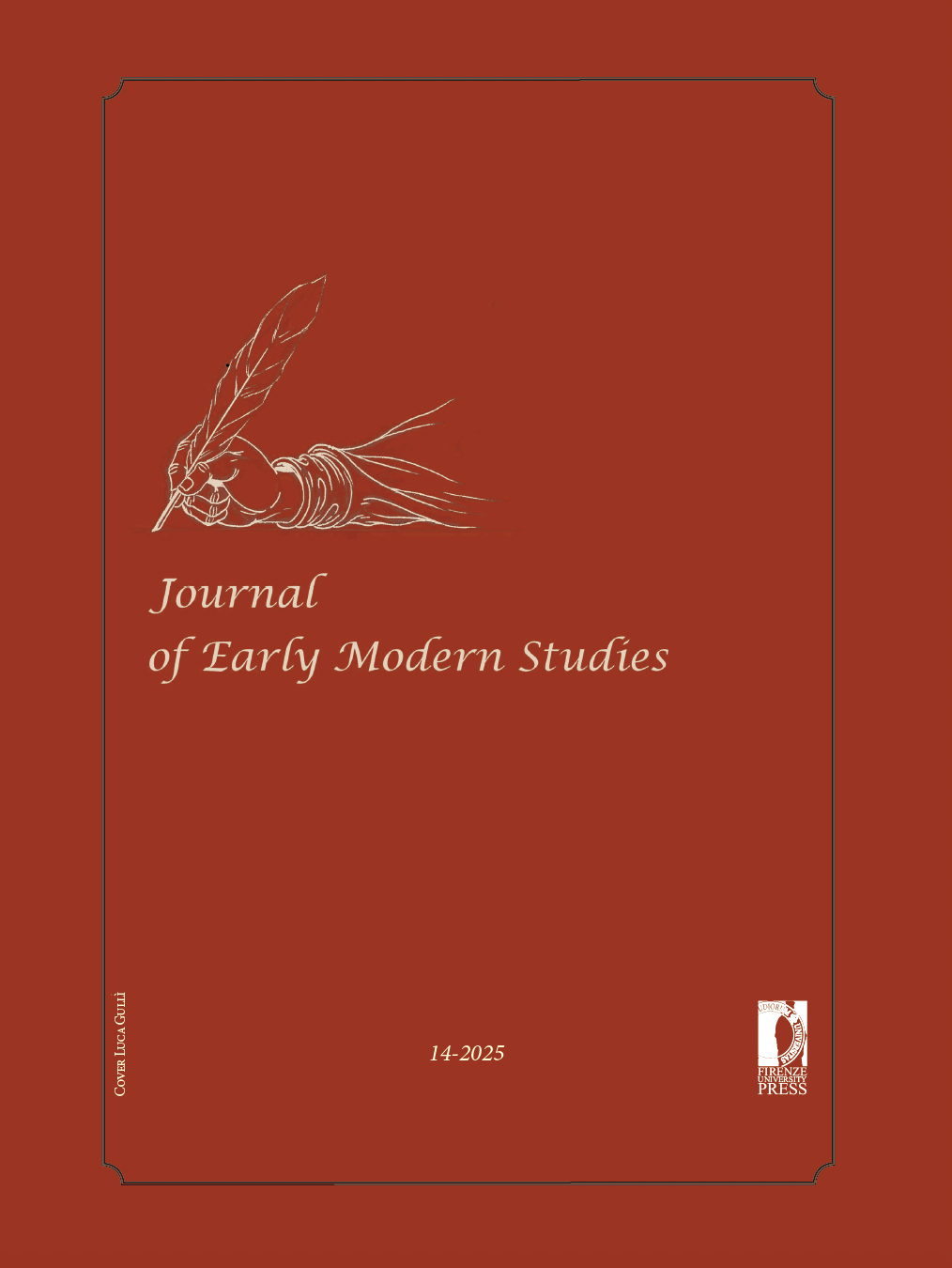Published 2025-07-01
Keywords
- Humphrey Moseley,
- Interregnum,
- Republicanism,
- Royalism,
- Stationer
How to Cite
Copyright (c) 2025 Justin Kuhn

This work is licensed under a Creative Commons Attribution 4.0 International License.
Abstract
The essay reassesses the ways in which book historians define the politics of early modern publishers by examining a selection of books published during the late 1640s and 1650s by Humphrey Moseley, a prominent London bookseller whom modern scholars have routinely characterized as a Royalist stationer. It argues that starting in 1648 Moseley’s publishing began to shift away from the overt Royalism of his earlier career just as Parliamentary and republican forces were consolidating their victories over King Charles I. From that year onwards, Moseley increasingly published material that repackaged the social, political and cultural values of former Royalists for inclusion within the intellectual and discursive spheres of republican England. His political flexibility during this period of Parliamentary supremacy and republican rule received expression through publishing strategies of contingency, conformity and collaboration. These publishing strategies offer modern scholars a set of critical methods for making sense of seemingly contradictory evidence within the historical archive. Rather than inconsistency, such evidence may signify that a publisher was changing their specialization or simply adapting to the times. With the shifting developments of his career after 1648, Moseley’s example ultimately cautions us against assigning fixed political identities to early modern publishers.

